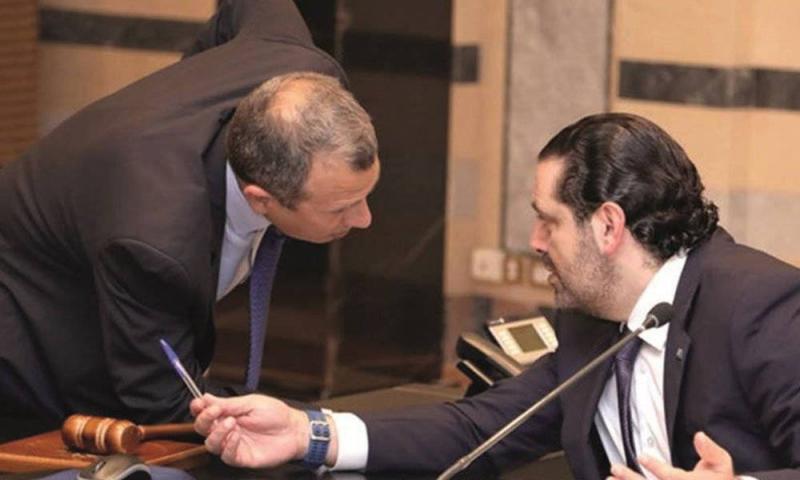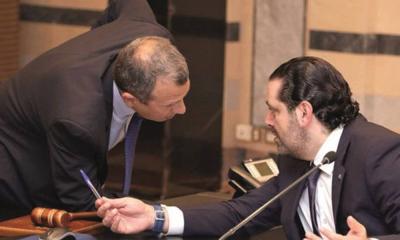Some leaders in what was known as the March 14 Forces repeat that in the most critical circumstances, President Saad Hariri saved his former ally, the head of the Free Patriotic Movement, Gebran Bassil. Bassil had previously ousted Hariri from the premiership at the beginning of 2011, just as Hariri was about to meet former U.S. President Barack Obama. Days later, General Michel Aoun famously said, "We gave Hariri a one-way ticket, and he will not return."
Perhaps unintentionally, Hariri saved Bassil this time, as those leaders in March 14 pointed out. The Free Patriotic Movement, along with Bassil, is going through a delicate electoral situation due to a decline in his popularity among Christian circles, as indicated by all polls. This reality presents a golden opportunity for Hariri to strike back at Bassil over the government’s ousting, the one-way ticket remark, and the accusations of extremism, as well as for obstructing Hariri’s recent attempts to form a government.
However, instead of taking advantage of this situation, Hariri suspended his political activities and offered a free gift to Bassil by announcing his boycott of the elections, both in nominations and voting, launching an unprecedented campaign against "the Hariri supporters" who ran or supported the lists, which bordered on betrayal.
This situation reassured MP Gebran Bassil, neutralizing the majority of Sunni votes, making it easier for him to benefit from the Shiite votes from his allies, Hezbollah and President Nabih Berri, to gather as many electoral gains as possible in districts that might lack Sunni votes, including the second Beirut district, Zahle, Rashaya, Western Bekaa, and Baalbek-Hermel, even if his candidates receive modest Christian votes that do not reflect accurate Christian representation.
In the 2018 elections, the alliance between Hariri and Bassil was a product of the presidential settlement. Hariri announced that his preferential vote, referring to Sunni votes in Batroun, was for his friend Gebran. However, at the same time and in other districts, he was allied with the Lebanese Forces and the Progressive Socialist Party. This is not the current situation. In both cases—whether in alliance or in suspending political work and boycotting the elections—Bassil benefited from Hariri, while the electoral damage affected the Lebanese Forces and the Progressive Socialist Party. If the Sunnis adhere to Hariri’s decision to boycott, this could lead to further harm to the nation and maintain the parliamentary and governmental majority within the axis of resistance, the Iranian influence axis, which Hariri complained about and considered the primary reason for suspending his political work.
Bassem Abu Zeid - Nidaa al-Watan




